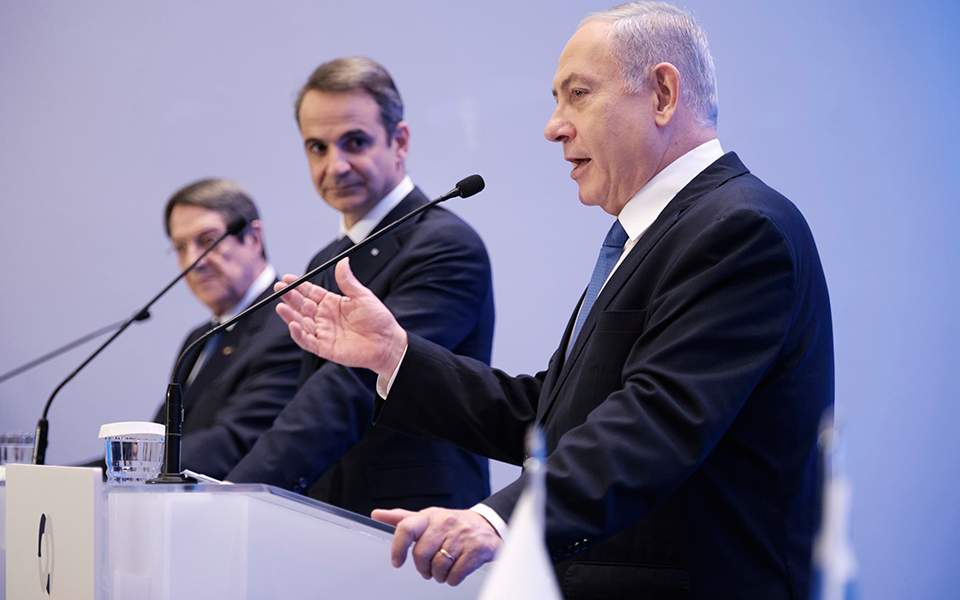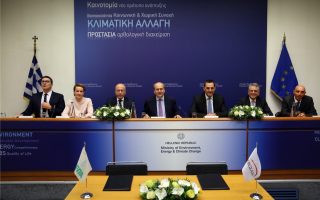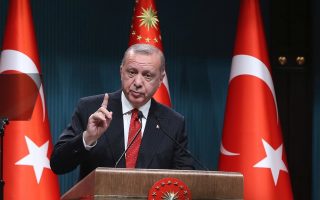Greece and Israeli-Turkish relations

Greece and Israel are celebrating the 30th anniversary of the establishment of full diplomatic relations. The Greek Parliament also voted recently in favor of the construction of the EastMed pipeline. The multi-party majority outlines the consensus about solid steps guaranteeing stability in the Eastern Mediterranean. While dynamics in the region are being continuously sculpted and largely depend on the role of great powers and the future of conflicts in Libya and Syria, Israel and Turkey are exploring new ways of collaboration.
The chargé d’affaires at the Israeli Embassy in Turkey, Roey Gilad, wrote an article in the Halimiz e-magazine suggesting that the two countries could cooperate in Syria as well as in the fight against Covid-19. Both Israeli and Turkish media subsequently published stories analyzing the pattern. News that an El Al cargo flight landed in Istanbul for the first time after 10 years was another indication of the improvement of bilateral ties.
The normalization of Israeli-Turkish relations is an ongoing process. In the last four years the two countries have agreed on some issues, such as the need for a higher trade volume, and disagreed on others, such as the Palestinian question or Turkish actions in the Eastern Mediterranean. It is natural and fair for states to endeavor to bridge differences and find common ground. Should Ankara endorse the Israeli position regarding the role of Iran in Syria because of the pain it suffered in Idlib, a window of opportunity for closer bilateral synergies will certainly open. But President Recep Tayyip Erdogan will need to accommodate US and Israeli concerns about Iran with the continuation of relatively good bilateral ties between Ankara and Tehran, and Moscow’s geopolitical aspirations in the region. A very delicate task.
Greece is closely monitoring developments and seeking a better diplomatic presence in the region. That is why it has appointed Ambassador Tasia Athanasiou as special envoy for Syria. The potential rewarming of Israel-Turkish ties does not affect the core priorities of Greek foreign policy, which are irrespectively centered around the strengthening of bilateral ties with Israel and the empowerment of the trilateral scheme with Cyprus.
Ten years ago someone could easily argue that it had been the deterioration of relations between Israel and Turkey that brought Greece and Israel closer. But even to think a decade later that the Greek-Israeli partnership will be somehow affected by the Israeli-Turkish rapprochement – that is nothing new – rather reflects a weakness to understand the depth of this friendship and realistic foreign policy calculations which go far beyond Turkey.
Dr George Tzogopoulos, senior fellow at the Hellenic Foundation for European and Foreign Policy (ELIAMEP), the Begin-Sadat Center for Strategic Studies and Centre International de Formation Europeenne (CIFE), teaches international relations at the Democritus University of Thrace.





